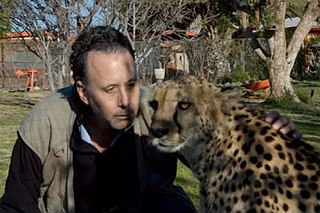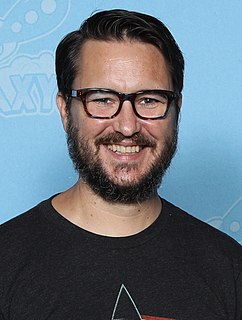A Quote by Annalee Newitz
Humans are a great survivor species but our survival will be pretty grim if all of the plants and animals we depend on die out. That's why any human survival strategy has to include a plan to maintain our environment roughly in the state that it's in now.
Related Quotes
I am dedicating the majority of my wealth to improving education. It is the key to the survival of the human race. We have to plan for our collective future - and the first step begins with the social, emotional, and intellectual tools we provide to our children. As humans, our greatest tool for survival is our ability to think and to adapt - as educators, storytellers, and communicators our responsibility is to continue to do so.
'Environment' is not an abstract concern, or simply a matter of aesthetics, or of personal taste - although it can and should involve these as well. Man is shaped to a great extent by his surroundings. Our physical nature, our mental health, our culture and institutions, our opportunities for challenge and fulfillment, our very survival - all of these are directly related to and affected by the environment in which we live. They depend upon the continued healthy functioning of the natural systems of the Earth.
There are millions of different species of animals and plants on earth--possibly as many as forty million. But somewhere between five and fifty BILLION species have existed at one time or another. Thus, only about one in a thousand species is still alive--a truly lousy survival record: 99.9 percent failure!
At issue is not only knowledge of the world but our survival as individuals and as a species. All the basic technologies ever invented by humans to feed and protect themselves depend on a relentless commitment to hard-nosed empiricism: you cannot assume that your arrowheads will pierce the hide of a bison or that your raft will float just because the omens are propitious and you have been given supernatural reassurance that they will. You have to be sure.
Our population and our use of the finite resources of planet Earth are growing exponentially, along with our technical ability to change the environment for good or ill. But our genetic code still carries the selfish and aggressive instincts that were of survival advantage in the past. It will be difficult enough to avoid disaster in the next hundred years, let alone the next thousand or million. Our only chance of long term survival, is not to remain inward looking on planet Earth, but to spread out into space.
Our greatest theoretical physicist, Stephen Hawking, recently declared that humans have no more than a hundred years to get off this planet to ensure the survival of our species. And when someone such as he does so, it is with an understanding not just of the science, but of both our tenuous place and our possibility in the universe.
Space travel leading to skylife is vital to human survival, because the question is not whether we will be hit by an asteroid, but when. A planetary culture that does not develop spacefaring is courting suicide. All our history, all our social progress and growing insight will be for nothing if we perish. No risk of this kind, however small it might be argued to be, is worth taking, and no cost to prevent it is too great. No level of risk is acceptable when it comes to all or nothing survival.
Evolution explains our biological evolution, but human beings are very unique creatures. As the Dobzhansky said, all animals are unique; humans are the uniquest. And that uniqueness of being human, language, art, culture, our dependency on culture for survival, comes from the combination of traditional biological evolution.

































